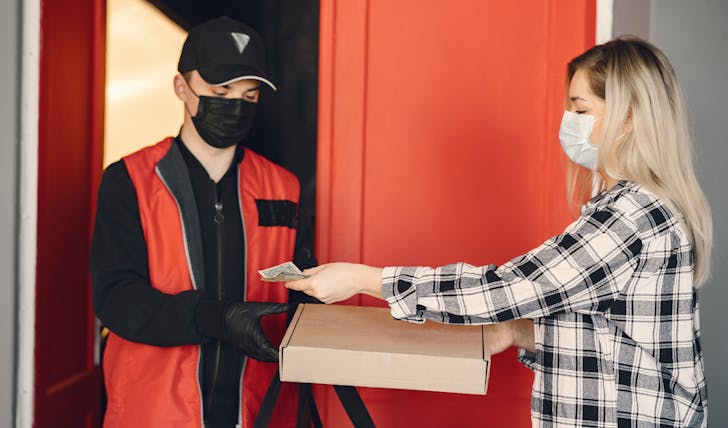Curious about a career that offers flexibility, purpose, and the satisfaction of making a difference? If so, becoming a medical courier is your best bet. Let’s explore how to become a medical courier and understand why it is an appealing opportunity for people seeking new job adventures.

These include things like blood samples, lab results, medical equipment, and prescription medications, reach their destination securely and promptly. While these professionals do not directly engage in medical care, their role is critical in maintaining the healthcare ecosystem.
As a medical courier, you are not just moving parcels from point A to point B. You are managing packages that could save lives, help diagnose diseases, or facilitate ongoing treatments.
What Does a Medical Courier Do?
Couriers carefully package and transport sensitive medical specimens to hospitals, laboratories, and clinics. They often work with biohazard materials. Maintaining a documented chain of custody is essential to ensuring these sensitive items remain intact and secure.

They need to follow strict regulations regarding the handling and transportation of medical materials.
What are the Qualifications for Becoming a Medical Courier?
Wondering how to become a medical courier? Here are the qualifications you will likely need:
While no formal education is required, a high school diploma or equivalent is often expected. You will need a valid driver’s license and a good driving record.
However, having a reliable vehicle (and sometimes a specific type, like a van) is a common requirement, along with appropriate insurance. Expect background checks and drug testing, as you will be handling sensitive materials.
Plus, the ability to lift and carry packages weighing up to 50 pounds is often necessary. You will l interact with medical professionals and patients, so excellent communication skills are essential.
How to Become a Medical Courier?
Ready to start? Here is a step-by-step guide on how to become a medical courier:
- Research the Industry: Gain a thorough understanding of what the role entails and the requirements. Look for courier companies and healthcare facilities that provide these services.
- Prepare Your Vehicle: If your vehicle needs upgrades or maintenance, now is the time to address that. Make sure it is reliable, clean, and appropriate for transporting medical items.
- Complete Background Checks: Initiate your background checks and drug testing early. Also, gather references and past employment information to smooth out the application process.

- Consider Independent Contracting: Some couriers are hired as independent contractors rather than full-time employees. Research this avenue if you want more flexibility.
- Training and Certification: While not always required, certifications in handling hazardous materials or medical transportation can give you an edge. Training often occurs on the job, but online courses can help prepare you.
Ideally, join relevant professional groups or attend events to connect with others in the field. Similarly, stay updated on state and federal regulations to maintain proper transport procedures.
How Much Do Medical Couriers Earn?
The earnings of medical couriers vary based on location, experience, and whether they are independent contractors or full-time employees. On average, a medical courier makes around $15-$25 per hour.
Annual salaries range from $30,000 to $50,000, with independent contractors potentially earning more based on the number of deliveries they make and the regions they cover.




